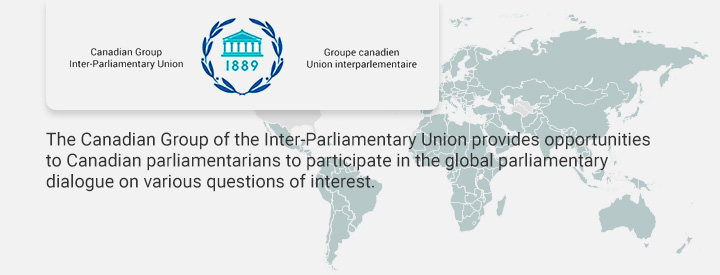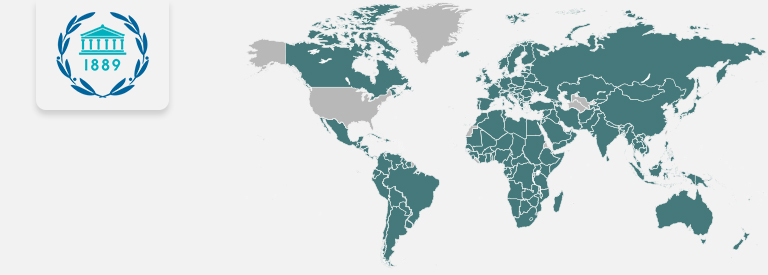About
The Inter-Parliamentary Union (IPU) is the international organization of parliaments of sovereign states. It protects and builds global democracy through political dialogue and concrete action. The IPU also fosters contacts, coordination and the exchange of experiences among parliaments and parliamentarians of all member countries. It is the focal point of international parliamentary dialogue on matters of international interest, and it works for peace, development and cooperation among peoples, the establishment of strong representative democracies, human rights and gender equality. The IPU supports the efforts of the United Nations, whose objectives it shares, and with which it works in close cooperation. It also cooperates with regional interparliamentary organizations, as well as with international intergovernmental and non-governmental organizations that are motivated by the same ideals.
The Inter-Parliamentary Union (IPU) was established in 1889, in an era when there were no established means for governments, parliaments or MPs to work together internationally. Englishman William Randal Cremer and Frenchman Frédéric Passy set up an association of MPs which has been transformed into the thriving global organization of today. The men, from vastly different social backgrounds, were united in their belief in solving international disputes through peaceful means. They both went on to win the Nobel Peace Prize – along with six other IPU figures. Their work led to the world’s first permanent international political organization and provided the origins for multilateral cooperation between nations today. The IPU was instrumental in setting up the Permanent Court of Arbitration in The Hague in 1899, and it helped lay the foundations for the creation of the League of Nations in 1919 and the United Nations in 1945. The IPU, which is headquartered in Geneva, Switzerland, currently has 178 Member Parliaments and 12 Associate Members who meet twice a year, in the spring and fall, to study international problems of current concern. It also convenes symposia and special conferences. Canada has been a member of the IPU since 1912. The Canadian Group of the IPU, established in its current form on August 2, 1960, consists of Senators and Members of Parliament of all political affiliations. Both former and current members of the Canadian Group have served as rapporteurs and chairs of the IPU’s four standing committees and geopolitical groups. Canada has also had representatives on the IPU Executive Committee, the body that oversees the administration of the IPU. During the IPU’s annual assemblies and other activities, an effort is made to ensure that, as much as possible and if the budget permits, Canadian delegations represent all political parties in the Senate and the House of Commons and include a significant number of women parliamentarians.
- Erica Pereira, Association Secretary
- Natalie Mychajlyszyn, Advisor
- Marlisa Tiedemann, Advisor


